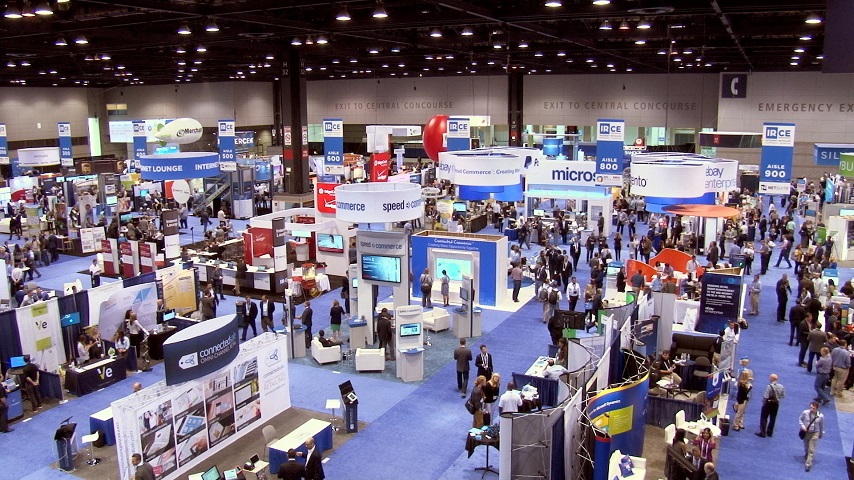Event marketing is more than just promoting an event—it’s about creating buzz, attracting the right audience, and building lasting relationships. Whether you’re organizing a small gathering or a large-scale conference, a strong marketing strategy can be the difference between a good event and a great one. Below are three essential event marketing tips that every organizer should keep in mind to ensure success.
1. Leverage Multi-Channel Marketing
To reach your audience effectively, you need to meet them where they are. A multi-channel marketing strategy ensures your message gets across to a diverse range of potential attendees.
Start with a Clear Marketing Plan
Your marketing plan should outline key elements such as:
- Target Audience: Identify who your event is for. Are you targeting industry professionals, students, or community members?
- Goals: Define clear objectives, such as ticket sales, registrations, or brand awareness.
- Key Channels: Determine the platforms your audience uses most frequently.
Use Social Media Effectively
Social media is one of the most powerful tools for event promotion.
- Event Pages: Create an event page on Facebook, LinkedIn, or other relevant platforms to provide details and updates.
- Engaging Content: Post teasers, behind-the-scenes videos, or speaker highlights to generate excitement.
- Influencer Collaboration: Partner with industry influencers or past attendees to promote your event.
Email Marketing
Email remains a reliable channel for reaching potential attendees directly.
- Segmented Campaigns: Personalize your emails based on attendee interests or demographics.
- Automated Reminders: Send automated messages to remind registrants of the event date, time, and location.
- Early Bird Offers: Use email campaigns to promote early registration discounts.
Leverage Paid Ads
Invest in paid ads to amplify your reach:
- Social Media Ads: Platforms like Facebook, Instagram, and LinkedIn offer advanced targeting options.
- Google Ads: Use Google Search and Display ads to target keywords related to your event.
- Retargeting Campaigns: Re-engage users who visited your website but didn’t register.
2. Focus on Creating Value for Attendees
Attendees will only commit to your event if they see clear value in attending. Your marketing should communicate what makes your event unique and worth their time.
Craft a Strong Value Proposition
Answer the question, “Why should I attend this event?”
- Exclusive Content: Highlight unique experiences, such as keynote speeches, workshops, or networking opportunities.
- Relevance: Show how the event addresses the specific needs or challenges of your audience.
- Outcomes: Share testimonials or case studies to demonstrate the tangible benefits past attendees have gained.
Highlight Key Features
Use your marketing to showcase standout elements of your event:
- Speakers: Feature renowned industry leaders or experts. Share their profiles and topics to build excitement.
- Agenda: Promote engaging activities, such as panel discussions, Q&A sessions, or breakout rooms.
- Tech Integration: If you’re using innovative tools like AR/VR, interactive polls, or event apps, emphasize these to attract tech-savvy attendees.
Engage with Visual Storytelling
Visual content is more engaging than text alone.
- Videos: Create short, captivating promo videos that capture the essence of your event.
- Infographics: Use infographics to share statistics, event highlights, or schedules.
- Live Streams: Share snippets from pre-event preparations or interviews with speakers.
Offer Incentives
Encourage attendance with incentives such as:
- Discount Codes: Provide promotional codes to early registrants or social media followers.
- Group Deals: Offer discounts for group registrations to attract teams or organizations.
- Giveaways: Host contests with free tickets or branded merchandise as prizes.
3. Nurture Post-Event Engagement
Marketing doesn’t end when the event does. Post-event engagement is crucial for building long-term relationships and ensuring your audience looks forward to your next event.
Follow Up with Attendees
- Thank You Messages: Send personalized thank-you emails to attendees, speakers, and sponsors.
- Surveys: Gather feedback to learn what worked well and what could improve.
- Recap Content: Share event highlights through blog posts, videos, or social media updates.
Repurpose Event Content
Extend the life of your event by repurposing content:
- Session Recordings: Share recorded sessions with attendees or offer them as on-demand content.
- Presentations: Distribute slides, reports, or resources shared during the event.
- Social Media Snippets: Use soundbites, quotes, or visuals to keep the conversation alive online.
Build a Community
Turn attendees into loyal advocates by fostering a sense of community.
- Exclusive Groups: Create LinkedIn or Facebook groups for attendees to connect and share insights.
- Regular Updates: Keep your audience engaged with newsletters, industry news, or announcements about future events.
- Smaller Events: Host webinars, networking meetups, or workshops to maintain connections between larger events.
Analyze Your Performance
Use post-event data to refine your strategy for future events:
- Attendance Metrics: Compare registrations to actual attendance.
- Engagement Levels: Assess participation in activities like polls, Q&A sessions, or social media engagement.
- ROI Analysis: Measure the financial return on your marketing efforts to identify areas for improvement.
Wrapping Up
Event marketing is an ongoing process that requires careful planning, creativity, and consistent follow-through. By leveraging multi-channel marketing, focusing on attendee value, and nurturing post-event engagement, you can create events that not only attract a crowd but also leave a lasting impression.
These three event marketing tips provide a solid foundation for success. Start implementing them today, and watch your events grow into must-attend experiences that deliver exceptional results.
